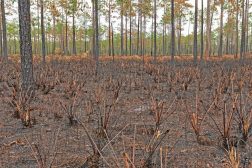Definition
noun
(pathology) A type of pneumonia that affects the lobe or an enormous section of a lung, and is often caused by Steptococcus pneumoniae infection of the lung
Supplement
Pneumonia pertains to the inflammation of the lung, particularly the pulmonary alveoli. It is usually caused by infection with viruses or bacteria (e.g. Streptococcus pneumonia, Staphylococcus aureus, Haemophilus influenza, and Klebsiella pneumoniae). It may be classified anatomically, i.e. according to the lung area affected: lobar pneumonia and bronchopneumonia. Radiological examination (via x-rays) is used to determine the anatomic type of pneumonia.
A lobar pneumonia is a type of pneumonia that affects the lobe of the lung in contrast to the lobular type (i.e. bronchopneumonia) that affects multiple lobe segments, i.e. affecting the lungs in patches around the bronchi or the bronchioles. In lobar pneumonia, the common causative agent is the Streptococcus pneumoniae. The sputum is scanty and usually of a rusty tint from altered blood.
If untreated, lobar pneumonia undergoes four stages: (1st) congestion, i.e. partial consolidation of the affected lung parenchyma on day 1-2, (2nd) red hepatization, i.e. the pulmonary lobe appears consolidated, with a liver-like consistency (hence, the term) on day 3-4, (3rd) gray hepatization, i.e. resulting in gray, liver-like consistency of the affected lobe on day 5-7, and (4th) resolution stage, i.e. characterized by a productive cough as the exudate within the alveolar spaces is drained through lymphatics and airways on day 8.1
Word origin: lobar (relating to lobe) + Ancient Greek pneumonía (“lung disease”), from pneúmōn (“lung”)
Compare:
- bronchopneumonia
See also:
Reference(s):
1 Lobar pneumonia. (2014). Atlas of Pathology. Retrieved from ://www.pathologyatlas.ro/lobar-pneumonia-leukocytic-alveolitis.php.







